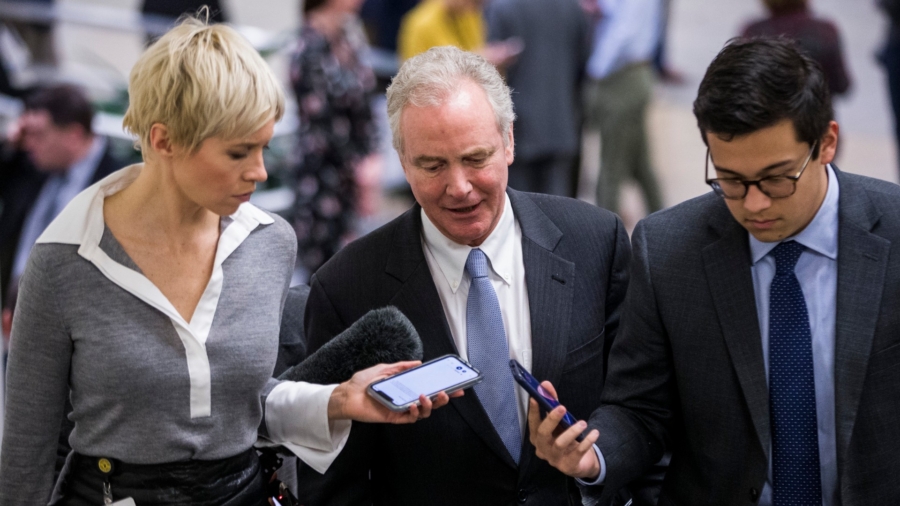WASHINGTON—The U.S. Senate passed legislation on June 25 that would impose mandatory sanctions on individuals or companies that back efforts by China to restrict Hong Kong’s autonomy, pushing back against Beijing’s proposal to enact a new national security law for the city.
The measure also includes secondary sanctions on banks that do business with anyone found to be backing any crackdown on the territory’s autonomy, potentially cutting them off from American counterparts and limiting access to U.S. dollar transactions.
The “Hong Kong Autonomy Act” passed by unanimous consent. To become law, it must also pass the House of Representatives and be signed by President Donald Trump.
Sen. Chris Van Hollen (D-Md.), a lead sponsor, said in the Senate the legislation would send a clear message to Beijing that there would be consequences if it acts to undermine Hong Kong’s autonomy.


“This could be our last opportunity to stay Beijing’s hand before it destroys what is left of freedom in the city,” said Sen. Josh Hawley (R-Miss.), another sponsor.
The bill almost passed last week, Van Hollen said, but was blocked by Sen. Kevin Cramer (R-N.D.)—who had co-sponsored it—at the request of the Trump administration, which made a late request for technical corrections.
The delay underscored how complicated it can be to pass legislation pushing back on China, as the administration pursues a trade deal with Beijing and the two powerful countries grapple for international influence and clash over human rights.
U.S.–China relations have reached their lowest point in years, since the coronavirus pandemic, which began in China, hit the United States hard.
China’s moves to impose the security legislation prompted Trump to initiate a process to eliminate Hong Kong’s special trading status with the United States. Such status, which designates Hong Kong as a separate entity from mainland China in matters of trade, investment, and visas, has allowed the city to remain a global financial center.
By Patricia Zengerle


